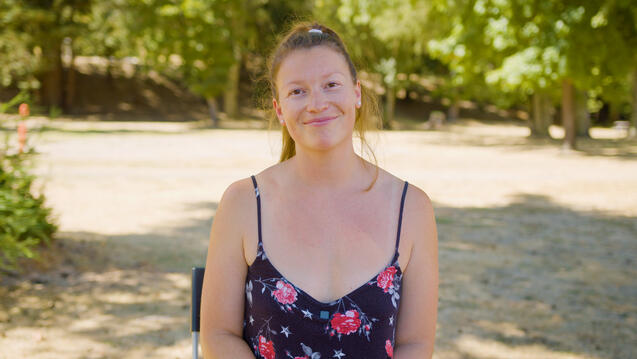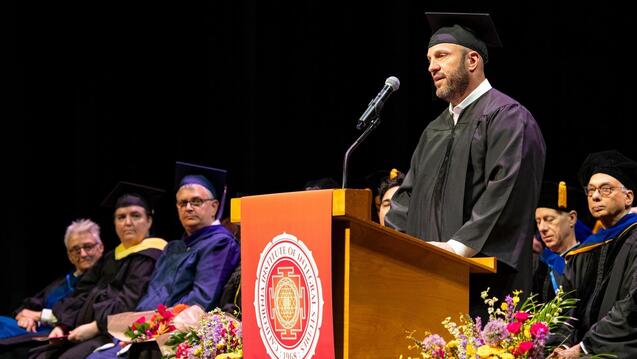Marine Corps veteran Bre Butler discovered a path to healing and transformation through CIIS' Integrative Health Studies program after five years of active duty service.

Working With Anger
How Intense Emotion Can Fuel Transformation
Over the years, I have realized that conflict is essential for true change to occur, and although I used to shy away from conflict (as many of us empaths do), a class I took this semester—the East-West Psychology course, Conscious Diversity—has encouraged me to address the internal conflict that arises when I think about the oppressor I carry inside.
The Oppressor Within
I realized that, ironically, I was most reluctant to face my internal oppressor in activist spaces. Now, don't hate me y'all, but what I am referring to is the toxic and aggressive environment that often gets produced in these spaces. We've all put our foot in our mouth at some point in our lives-like the time I was proudly talking about "taking a stand" against systematic oppression, only to realize that my words were offensive to the disabled community. After all, we are not born knowing social justice jargon (which is often elitist and exclusionary in its own way). I'm finding that rather than educating people and helping them understand how and why their actions or words are hurtful, we often attack and alienate the very people we need to include if we are ever going to create lasting change in our society.
Why do we do this? It seems that many activists are so committed to helping the oppressed that we are unable to see our own positions of privilege and rank. Without realizing it, we often unconsciously end up reproducing the oppressive environments and spaces we are working so hard to destroy.
Getting Honest
I'm going to be extremely vulnerable here. I've realized that behind my desire to achieve justice for my people, I was hiding some pain, anger, and the desire for revenge. The unaddressed pain I had internalized from the suffering of our communities had hardened into anger at our social systems and institutions, which morphed into a desire for revenge against the racist, bigoted people who had hurt so many others. It felt easier to use the fight for justice as a blanket to hide anger at myself for not doing more to help others, and anger that I was also an oppressor in some ways, benefiting from systems within the U.S. and across the globe. While these feelings deserve to be expressed, I had to admit to myself that unconsciously bringing pain and anger into the fight for justice and equity could be hurtful to the movement itself.
Channeling Anger
I would love to give some insightful suggestions here, but the truth is, I am still trying to understand how to manage these feelings myself. As the wise ones say, nothing gets people moving like lighting a fire under their asses, but while our pain can fuel our inner fires of transformation, it can also get out of control if left unattended. What I am starting to realize is that the most powerful type of activism you can engage in is personal transformation. So maybe the best thing we can do is acknowledge our pain and anger and use it to spark our awakening and growth, rather than carrying it around, lashing out at people who walk beside us, and letting it turn into a fire that eventually burns down the world around us.
I invite you to email me at ganguiano@ciis.edu if you want to share any insights or personal experiences, so we can keep this conversation going from more than one perspective! Keep those inner fires burning and as always, go on with your bad selves ;)
(If you're interested in reading more about this topic, check out Sitting in the Fire: Large Group Transformation Using Conflict and Diversity by Arnold Mindell, a textbook used in the class that sparked this rant—I mean, reflection—EWP 6329: Conscious Diversity.)
Genesis Anguiano is a writer and activist who is passionate about personal and spiritual growth that is grounded in community dialogue and engagement. She is an MA candidate in East-West Psychology and a Writing Fellow.
Related Academic Programs
Related News
Integral Counseling Psychology M.A. graduate Marissa Huang gave one of two student speeches at CIIS’ 57th Commencement Ceremony.
B.S. in Psychology graduating student Dominic Bucci delivered one of two student reflections at CIIS’ 57th Commencement Ceremony.



